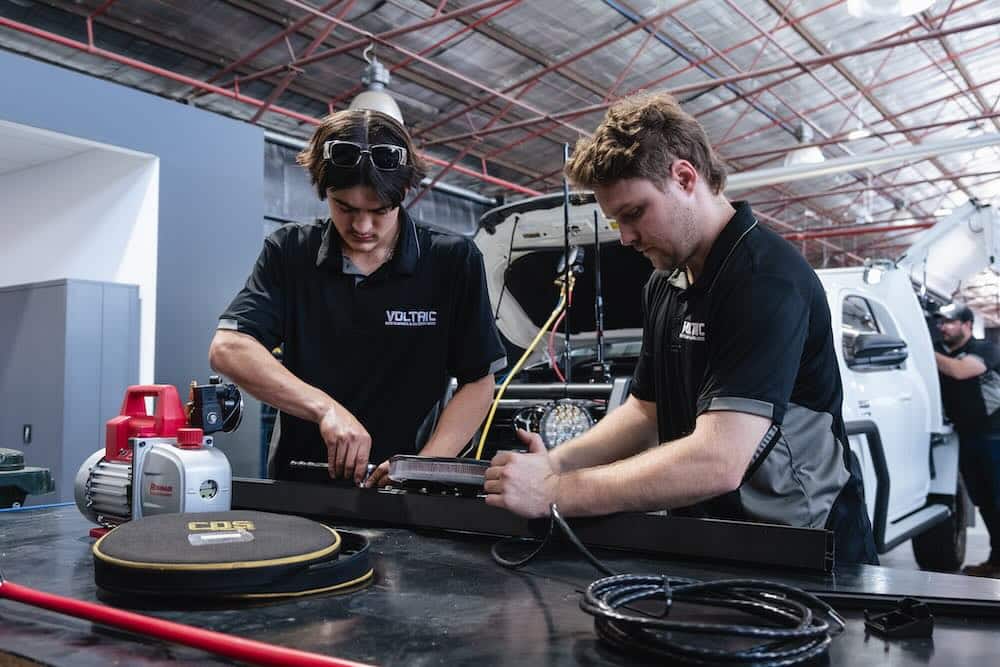Want to know how to tell if your car air conditioner compressor is bad? Common symptoms include insufficient cooling, unusual noises, and visible leaks.
The compressor is the powerhouse of your car’s air conditioning system. It compresses and circulates refrigerant to ensure cool air reaches your cabin. When it fails, the entire AC system struggles to do its job. But don’t worry; recognising the warning signs early can save you from bigger, costlier problems down the road.
In this blog, our car aircon service experts explain how to identify issues, the common causes for issues, and discuss whether it can be repaired or needs replacement.
Quick Summary
- Symptoms: Warm airflow, strange noises, visible leaks, and clutch issues are telltale signs of compressor failure.
- Causes: Moisture intrusion, loss of lubrication, natural wear and tear, and refrigerant problems can all contribute.
- Repairs vs. Replacement: While minor issues can sometimes be repaired, significant damage often requires a full replacement.
- Pro Tip: Regular maintenance, like refrigerant checks and cabin filter replacement, can help extend your compressor’s life.
What Does the AC Compressor Do?
The AC compressor is the heart of your car’s air conditioning system, responsible for pumping refrigerant through the condenser, receiver/drier, and evaporator to produce cool air. It’s the only moving part in the system, powered by the serpentine belt. This constant motion makes it prone to wear and tear over time, especially without proper maintenance.
How to Tell if Your Car Air Conditioner Compressor is Bad
Warm or Insufficient Cooling
- If your AC isn’t blowing air as cold as it should, the compressor may not be circulating refrigerant effectively.
- Other potential culprits: low refrigerant levels or a clogged system. Learn more about why your car air conditioner isn’t getting cold to identify related issues.
Unusual Noises
- Strange sounds like chattering, whining, or squealing could point to internal component failure or a seized compressor shaft.
- The clutch or belt pulley is often the root of these noises.
Visible Leaks
- Refrigerant escaping through damaged seals, hoses, or gaskets is a common sign. Look for oil residue or wet spots around the compressor.
- UV dye or electronic tools may be required for accurate detection.
Clutch Malfunction
- The compressor clutch may fail to engage, preventing the AC from functioning. You may notice a lack of the usual clicking sound when switching on the AC.
Physical Damage or Corrosion
- Rust, bent components, or leaking oil on the compressor could indicate internal damage, often caused by moisture in the system.
Common Reasons for Compressor Problems
Moisture Intrusion
Water vapour entering the system can cause corrosion and contaminate the compressor oil, leading to failure.
Loss of Lubrication
Insufficient or contaminated oil increases friction, damaging internal components.
Wear and Tear
Compressors generally last 12–15 years, but poor maintenance can cause premature failure.
Refrigerant Issues
Low refrigerant levels from leaks or blockages reduce efficiency and strain the compressor. Find out how to get the most out of your car’s air conditioning to avoid these issues.
How to Identify Compressor Issues
- Turn on the AC: Run the AC on high and observe its performance. Check for unusual noises, airflow issues, or warm air.
- Listen Closely: Pay attention to sounds near the engine. Chattering or whining often signals compressor trouble.
- Inspect for Leaks: Look under the car or around the compressor for signs of refrigerant or oil leaks.
- Check Clutch Engagement: The compressor clutch should click and spin when the AC is activated. If it doesn’t, there’s likely an issue.
Can a Car Air Conditioner Compressor Be Repaired?
The answer depends on the severity of the issue.
Minor Repairs:
- Problems like a worn clutch, defective belt, or small leaks can often be repaired without replacing the entire compressor.
- Professional technicians can also address minor contamination in the system by flushing and regassing.
Replacement:
- For major failures, such as internal component damage or severe refrigerant contamination, replacement is often the only viable solution.
- A failing compressor can also release debris into the system, which may require additional cleaning and part replacements to restore proper function.
Repair or Replace: How to Decide
- Cost Analysis: Repairs are typically cheaper but may not last as long. Replacements, while more expensive upfront, ensure long-term reliability.
- Professional Diagnosis: A skilled technician can evaluate your compressor and recommend the most cost-effective solution.
- Warning: Delaying repairs can cause further damage to the AC system, leading to higher repair costs down the line.
Preventive Maintenance Tips
To keep your car’s AC compressor in top shape:
- Schedule Regular Inspections: Have your AC system checked at least once a year, especially before summer.
- Replace Cabin Air Filters: Clogged filters can restrict airflow and overwork the compressor.
- Monitor Refrigerant Levels: Ensure refrigerant is topped up and leaks are repaired promptly.
- Keep the System Clean: Clear debris from around the condenser and ensure airflow isn’t obstructed.
Book Your AC Compressor Service Today
Don’t let a failing AC compressor leave you sweating in the heat. At Voltaic, our expert technicians specialise in diagnosing and repairing AC systems to keep you cool and comfortable.
Take advantage of our $199 aircon service and regas for peace of mind all summer long.
Call us today to book your car aircon service in Perth or submit a form on our aircon page.
FAQs
How can I tell if my car air conditioner compressor is bad?
Look for warm air, odd noises, visible leaks, or a malfunctioning clutch.
Can a car air conditioner compressor be repaired?
Minor issues can be repaired, but severe damage often requires a replacement.
How much does it cost to replace a compressor?
Costs vary depending on the car model and compressor type. Professional evaluation is recommended.
What’s the lifespan of a car AC compressor?
With proper maintenance, most compressors last 12–15 years.

